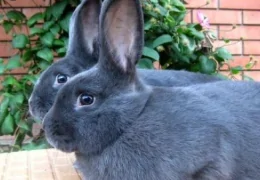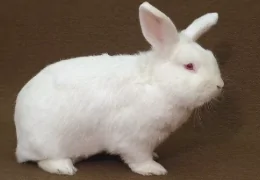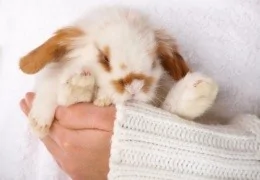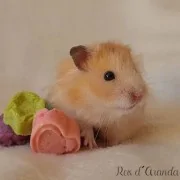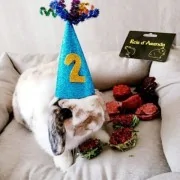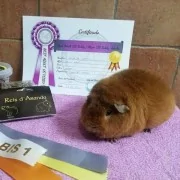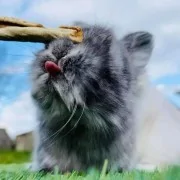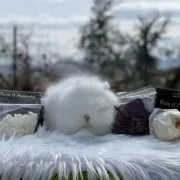Its name says it all: the Vienna blue rabbit comes from Austria. Not only is it beautiful with its shiny blue-grey...
CASTRATION IN RABBITS
INTRODUCTION
It is generally always recommended to neuter male and female rabbits (whether they live with other rabbits or not) that you keep as pets. The reasons for this are very similar to those for dogs and cats, and are related to issues of disease prevention, hygiene and good cohabitation. One might think that it is "unnatural" to remove their sexual instincts, but let's not forget that life as a pet has very few similarities with life in the wild.
DIFFERENCES BETWEEN SPAYING AND NEUTERING
Many owners are not always clear about the difference between neutering and spaying. Broadly speaking, neutering keeps the pet's sexuality intact (which is the same as a vasectomy or tubal ligation, but the sexual organs are not removed), whereas spaying and neutering means that the animal will no longer be able to have sexual relations (the sexual organs are removed).
AT WHAT AGE SHOULD I CASTRATE MY RABBIT?
Here we enter into the "every rabbit for himself" but broadly speaking, rabbits should be castrated from 5 months of age. Some mass animal breeding companies deliver two-month-old castrated rabbits, which is totally incorrect as we then find ourselves with infantilised animals (baby penises in adult animals) or that die prematurely as they do not have the strength to recover from the anaesthetic. Hormones play a very important role in the growth of the animals so it is much healthier for them to wait until they reach adulthood (5 months) to perform the procedure. In the case of giant breeds such as the Flanders Giant it is better to wait until 8 months.
BENEFITS OF CASTRATION IN RABBITS
If our rabbit is going to be used only for companionship and we do not want to take it to shows (as castrated animals are forbidden except for the "pet competition" or the "veterans" section which is for rabbits over 4 years of age, where the care and health of the older animal is rewarded), castration is the best option; not only will we be preventing diseases such as uterine, ovarian, mammary (which can occur in both sexes) and testicular cancer, but also psychological pregnancies, mastitis (related to the above) or behavioural problems linked to the hormonal system: territoriality, aggressiveness due to "horniness" (this occurs in bitches with very high hormone levels). Some behavioural problems such as urine marking can be greatly benefited and it will be easier to teach them to do their things in the same place, and we will be able to have more than one rabbit without the need to keep them separated (this last point is not 100% reliable even with castrated rabbits, but we will talk about it in the corresponding article).
POSTOPERATIVE CARE OF CASTRATION OF RABBITS
We will always be guided by the advice of our exotic vet, but the main care is to see that our rabbit is "active" after recovering from the anaesthetic, urinates and defecates normally and has a good appetite. Sometimes we have rabbits which do not want to eat for whatever reason, so it is advisable to have powdered food for rabbits and force them to eat with a syringe until they do so by themselves (to avoid intestinal stoppage and the formation of gas in the intestine due to the stoppages, which could cause the death of our pet).
We will also have to prevent him from removing the stitches or touching the wound (it will bother him and itch a lot), so we can opt for surgical bodies.
CONCLUSION
Neutering our rabbit is a very good option when it is only going to be used as a companion animal (not for show or breeding), it is a relatively simple process and its post-surgical recovery is quick in the great majority of rabbits. We must not forget that we always have to go to an exotic vet to carry out this procedure and that rabbits should NOT fast for the operation.
Leave a comment
Log in to post comments






